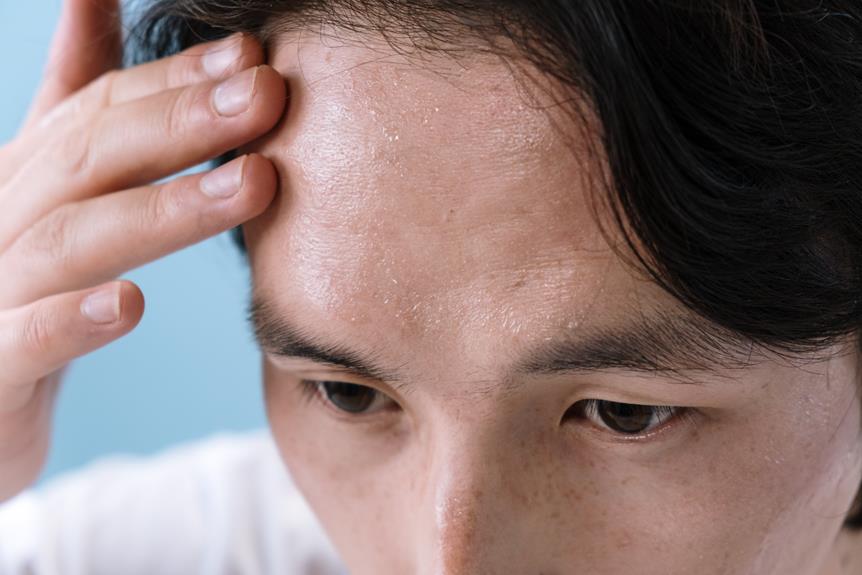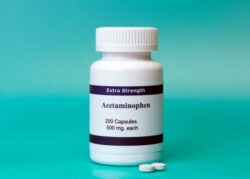Truvada for HIV PrEP
With approximately 200,000 individuals in the US relying on Truvada for pre-exposure prophylaxis (PrEP) in HIV prevention, understanding its benefits and risks is crucial. This article offers an in-depth examination of Truvada's role in HIV prevention, its side effects, interactions with other drugs, and associated legal implications. We will also explore Descovy, a recently approved alternative, its potential advantages, and the future of HIV PrEP therapy.

Key Takeaways
- Truvada is a prescription drug used for pre-exposure prophylaxis (PrEP) to prevent HIV.
- When taken daily, Truvada is up to 99% effective as PrEP, according to the CDC.
- Common side effects of Truvada for PrEP include headache, abdominal pain, and weight loss.
- Truvada has been approved by the FDA for PrEP since 2012.
Understanding Truvada as a Prescription Drug
Truvada, a prescription drug utilized by approximately 200,000 Americans, serves as a crucial component in the fight against HIV, acting as a pre-exposure prophylaxis and key part of HIV treatment regimens. Truvada's effectiveness in preventing HIV transmission is significant, with it being up to 99% effective when taken daily as a pre-exposure prophylaxis. This effectiveness has had a profound impact on public health initiatives aimed at controlling and reducing HIV transmission. Increased usage of Truvada has contributed to a notable decrease in new HIV diagnoses, reaffirming its importance in the realm of public health. As such, Truvada continues to be a critical tool in the HIV prevention toolkit, bolstering efforts to combat the HIV epidemic nationwide.
The Role of Truvada in HIV PrEP
Understanding the role of this antiretroviral medication in HIV Pre-Exposure Prophylaxis (PrEP) is crucial to our comprehension of modern preventive measures against HIV transmission. Truvada, when used as PrEP and taken regularly, has proven to be highly effective in preventing HIV transmission. The effectiveness of Truvada as PrEP is significantly high, with the Centers for Disease Control and Prevention (CDC) stating that its effectiveness can reach up to 99% when taken daily. However, it is important to also consider the long term effects of Truvada use. While it has been a game-changer in HIV prevention, some users have reported serious side effects such as kidney, liver, and bone problems. Regular monitoring and consultation with healthcare providers are essential while taking this medication.
Side Effects of Truvada for HIV PrEP
While Truvada has proven to be an effective method of HIV prevention when used as PrEP, it is essential to note that it can also cause various side effects that patients should be aware of. Common side effects include headaches, abdominal pain, and weight loss. However, more severe, long term effects such as kidney, liver, and bone problems have also been reported. According to patient experiences, these conditions can significantly impact quality of life and may require additional medical intervention. Furthermore, some individuals may experience rare but serious complications like lactic acidosis and severe hepatomegaly with steatosis. It is crucial for patients considering or currently using Truvada for PrEP to be fully aware of these potential side effects and discuss any concerns with their healthcare provider.
Serious Health Risks Associated With Truvada
A significant number of patients using Truvada for HIV PrEP have reported serious health risks associated with the drug, including kidney damage, liver problems, and decreased bone density. These side effects exemplify the long term effects of Truvada use, which may have severe implications on the patients' overall health. Although the drug's efficacy in different populations has been established, it is crucial to consider these risks in prescribing Truvada. Particularly, patients with pre-existing kidney or liver conditions, or older adults at risk of osteoporosis, may face heightened risks. Thus, while Truvada plays a vital role in HIV prevention, healthcare providers must weigh these serious health risks against the benefits for each individual patient.
The Impact of Drugwatch.com in the Medical Field
Remarkably, Drugwatch.com has significantly influenced the medical field by providing accessible and reliable information about medications and medical devices, and by connecting individuals adversely affected by these products with legal resources. The Impact of Drugwatch.com on medical information has been pivotal, especially concerning Truvada's role in HIV prevention and treatment. By providing in-depth information about Truvada's potential side effects and legal issues, the website has empowered patients to make informed decisions about their health. Furthermore, it has also shed light on the critical issues surrounding the use of Truvada, helping to facilitate discussions about its safety and efficacy. Overall, Drugwatch.com's contribution to the medical field has been invaluable, promoting transparency and fostering patient awareness.
The Extent of Truvada Use in the United States
In the context of HIV prevention in the United States, Truvada has become a widely used pharmaceutical intervention, with approximately 200,000 out of the 1.1 million Americans at risk for HIV currently utilizing it for PrEP. However, despite its prevalence, Truvada's accessibility and affordability remain significant obstacles. The medication's high cost can deter potential users, while the lack of comprehensive health insurance and medical facilities in some areas can limit its availability. Moreover, there are significant challenges in reaching high-risk populations, such as men who have sex with men, and racial and ethnic minorities. To maximize Truvada's potential in reducing HIV transmission rates, these issues must be addressed through policy change, educational outreach, and innovative healthcare solutions.
Gilead Sciences: the Manufacturer Behind Truvada
Behind the production and distribution of Truvada, a key player in the fight against HIV, stands Gilead Sciences, a biopharmaceutical company with a profound impact on the field of antiviral medicine. Gilead Sciences' role in HIV prevention has been significant, with Truvada being a testament to their ongoing dedication. As the manufacturer of this highly effective prophylactic drug, they have enabled a considerable decrease in HIV transmission rates globally. Truvada's impact on public health is substantial, not only reducing the risk of HIV infection, but also contributing to a greater awareness and understanding of HIV prevention strategies. Despite controversies, Gilead Sciences continues to innovate in the realm of antiviral drugs, making strides towards a future where HIV can be effectively managed or even eradicated.
FDA Approval and Market Sales of Truvada
With the backing of the FDA approval for use as a preventative measure against HIV, Truvada has made a significant impact on the pharmaceutical market, boasting record-breaking sales in recent years. The FDA approval process took into consideration the drug's efficacy in preventing HIV infection and its safety profile. Since its approval, Truvada has faced market competition from other HIV PrEP drugs, but has remained a leading choice due to its proven effectiveness. Sales have been propelled by the ongoing global effort to combat HIV, leading to a high demand for effective preventative measures. Despite facing lawsuits related to its side effects, Truvada continues to dominate market shares, proof of its substantial role in the fight against HIV.
The Science Behind Truvada’s Effectiveness
Truvada employs a unique scientific mechanism to prevent HIV infection, and its effectiveness has been demonstrated in numerous clinical trials. It contains two active ingredients, emtricitabine and TDF, which work by blocking the HIV reverse transcriptase enzyme. This action inhibits HIV replication, thus reducing the viral load in the body. Studies have shown Truvada's long term effectiveness when taken consistently, with its ability to reduce the risk of HIV infection by up to 99%. However, its effectiveness decreases significantly if not taken daily. Despite its success, public awareness about Truvada as a preventive measure against HIV is still relatively low. Efforts to increase this awareness are crucial to maximize Truvada's potential in reducing the global HIV burden.
Clinical Trials Supporting Truvada’s Efficacy
Regularly conducted clinical trials, both domestically and internationally, have consistently demonstrated the efficacy of Truvada as a pre-exposure prophylaxis for HIV, and these trials serve as a core part of the ongoing monitoring and validation process for this treatment. These studies have substantially contributed to our understanding of the long-term effectiveness of Truvada as HIV PrEP. They have shown that, when taken as prescribed, Truvada significantly reduces the risk of HIV infection in high-risk populations. This includes individuals who engage in sexual behaviours that increase their risk of HIV exposure, as well as those who inject drugs. As such, these trials have been instrumental in confirming Truvada's role in HIV prevention strategies globally.
Importance of Adherence to Truvada Medication
The patient's commitment to consistently taking Truvada as prescribed is critical, for it directly influences the medication's efficacy in preventing HIV infection. Adherence to Truvada offers benefits such as reduced risk of HIV transmission and improved health outcomes. A strict regimen ensures a steady concentration of the drug in the bloodstream, maximizing its protective effect. However, challenges in maintaining Truvada adherence may arise due to factors like side effects, forgetfulness, or access to the medication. Overcoming these hurdles requires patient education, regular follow-up, and support systems. It's essential to understand that the effectiveness of Truvada as PrEP is significantly compromised with inconsistent usage, underlining the importance of adherence.
Common Drug Interactions With Truvada
Understanding potential drug interactions when using Truvada for HIV PrEP is crucial for ensuring safety and efficacy in its usage. Truvada may interact negatively with drugs such as didanosine, HIV-1 protease inhibitors, atazanavir, and those affecting renal function. These drug interactions can lead to reduced effectiveness and increased side effects. It is essential for healthcare providers to review all medications a patient is taking, including over-the-counter drugs and supplements, to identify possible interactions. If a significant interaction is identified, potential alternatives may be considered. One such alternative is Descovy, which has shown similar effectiveness to Truvada but may have fewer negative effects on bones and kidneys. However, every patient's circumstances vary, so individual medical advice is essential.
Introduction to Descovy: An Alternative to Truvada
As we delve into potential alternatives to Truvada, Descovy emerges as a viable option, offering similar effectiveness in HIV prevention but with potentially fewer detrimental effects on bones and kidneys. This brings us to Descovy vs. Truvada: A Comparative Analysis. Both drugs effectively limit HIV's ability to replicate within the body, playing a crucial role in PrEP regimens. However, Descovy has been linked with less potential for bone and kidney harm, which can be a significant concern for long-term Truvada users. Thus, The Benefits of Descovy over Truvada become evident, especially for those with pre-existing renal or bone conditions. It's important to note, though, that both medications should be taken under the guidance of a healthcare provider for optimal results.
Legal Implications and Lawsuits Involving Truvada
Gilead Sciences' marketing and distribution of Truvada have not only been profitable, but they have also generated a series of legal controversies and lawsuits, primarily centered around allegations of insufficient warning about potential side effects. The Truvada lawsuits have highlighted the legal consequences of Truvada, raising concerns about the drug's impact on bone density and kidney health. Several plaintiffs have argued that Gilead did not adequately communicate these risks, leading to unforeseen medical complications. These legal battles underscore the importance of comprehensive and transparent communication from pharmaceutical companies about their products' potential side effects. As Truvada continues to be a preventative measure for HIV, the outcome of these lawsuits will undoubtedly shape the company's future legal and ethical obligations.
The Future of HIV PrEP and Truvada
Looking towards the future of HIV prevention, the role of Truvada as a PrEP medication remains critical, and advancements in drug development could potentially improve its efficacy and safety profile. The future of HIV prevention methods may see new formulations or delivery systems for Truvada, making it more accessible and easier to use for individuals. Furthermore, research should continue examining the effectiveness of Truvada in different populations, including women, adolescents, and diverse ethnic groups. This would ensure that everyone at risk of HIV could benefit from this preventive strategy. As science progresses, Truvada and other PrEP medications will play an increasingly vital role in the global strategy to end the HIV epidemic.
Frequently Asked Questions
What Is the Cost of Truvada for Prep and Is It Covered by Insurance?
The cost of Truvada for PrEP varies based on dosage and location, averaging around $2000 per month without insurance. Many insurance plans do cover Truvada, and Gilead Sciences offers financial assistance programs to help eligible patients afford their medication. It's important to check with your insurance provider and explore assistance programs to determine your potential out-of-pocket expenses.
Can Truvada Be Used by Individuals of All Ages and Genders?
Truvada's usage spans across different ages and genders, however, it is essential to follow the appropriate dosage guidelines. Regardless of age or gender, potential users must be aware of potential side effects, including kidney, liver, and bone problems. Consultation with a healthcare provider is crucial before initiating treatment to understand the risks and benefits. Remember, Truvada is not a cure for HIV/AIDS, but a preventive measure when used correctly.
How Does Truvada for Prep Interact With Hormonal Contraceptives or Other Common Medications?
Truvada, when used for pre-exposure prophylaxis (PrEP), may interact with hormonal contraceptives and other common medications. It is crucial to consult healthcare providers about all medications being taken. While Truvada does not generally affect the effectiveness of hormonal contraceptives, some interactions could cause side effects or drug resistance issues. Comprehensive knowledge of these potential interactions ensures safer use and helps prevent unintended consequences such as decreased effectiveness or increased toxicity.
What Lifestyle Changes or Precautions Should Be Taken While on Truvada for Prep?
While on medication, it's crucial to adjust one's lifestyle akin to a sailor changing course amidst a storm. Ensuring a balanced, nutrient-rich diet is essential, as certain Truvada side effects can include loss of appetite and stomach issues. Regular exercise and adequate hydration may help alleviate these symptoms. Smoking and excessive alcohol consumption should be avoided as they may worsen side effects. Regular health check-ups are advised to monitor any potential health-related changes.
How Quickly Does Truvada Start Working After You Begin Taking It?
When beginning a Truvada regimen, the medication reaches maximum protective effect for receptive anal sex after approximately 7 days of daily use. For receptive vaginal sex, it requires about 20 days. It's crucial to follow dosage instructions to ensure maximum effectiveness. Despite its efficacy, users may experience side effects such as headache, abdominal pain, and weight loss. More severe complications include potential kidney, liver, and bone issues. Regular health check-ups are recommended while taking Truvada.
Conclusion
As modern medicine triumphs with pioneering HIV prevention drugs like Truvada, the irony lies in the shadow of its severe side effects and legal implications. Nonetheless, the advent of alternatives like Descovy offers hope for safer HIV PrEP. Thus, the future of HIV prevention hinges on the balance between efficacy and safety, underscoring the necessity for continuous research and transparency in the pharmaceutical industry.

This post has been generated by AI and was not reviewed by editors. This is Not legal advice. Please consult with an attorney.




